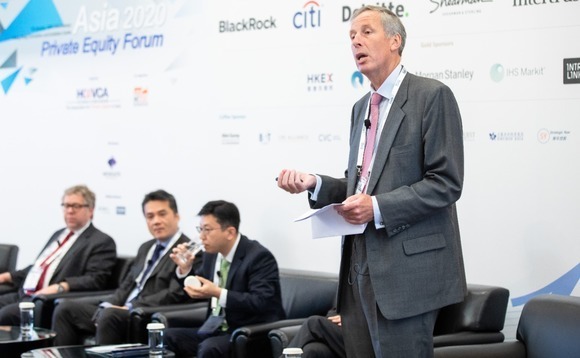
Hong Kong seeks to address carried interest concerns

The Hong Kong government has pledged to resolve uncertainty within the private equity industry on the taxation of carried interest as part of efforts to make the territory more attractive to fund managers.
"We are looking into this seriously and we hope in the coming months to come up with a concrete proposal that will make Hong Kong if not the most competitive location then one of the most competitive in the world," Chris Sun, a deputy secretary with the Financial Services and the Treasury Bureau (FSTB), which is responsible for executing government policy on financial services issues, told the Hong Kong Private Equity & Venture Capital Association's (HKVCA) Asia forum.
Darryl Chan, executive director for corporate services at the Hong Kong Monetary Authority (HKMA) also emphasized the importance of providing clarity on tax treatment. This came after Financial Secretary Paul Chan said in his opening remarks at the event that he recognized there were concerns over tax policy. Neither mentioned carried interest specifically.
In his budget speech last year, Chan announced plans to explore competitive tax arrangements for private equity and an update to the limited partnership ordinance. Progress has been made on the latter issue. Sun told the HKVCA forum that a bill would be introduced to the Legislative Council in the coming months and hopefully pass into law this year. Enabling PE firms to domicile funds in Hong Kong is integral to bringing every part of the management and investment process onshore.
Steps have already been taken to make it easier for private equity firms to carry out meaningful activities in Hong Kong without triggering permanent establishment from a taxation perspective. Amendments came into effect last year that made the profits tax exemption for PE funds – introduced in 2015 but beset by execution challenges – more usable.
However, there are still areas in which industry wants more clarity, among them carried interest. Asian PE firms usually establish funds and investment management entities in the Cayman Islands and then advisory entities in Hong Kong and other locations. The 2% management fee accrues to the holding company and cash is remitted to the advisory entities to cover costs plus a little extra. This is taxed as income at 16.5%. Carried interest is deemed a capital gain, so there is no tax at all.
The issue arose in 2016 when the Inland Revenue Department (IRD) published practice notes relating to the application of the profits tax exemption. It stated that carried interest received by the investment manager outside of Hong Kong could be targeted under anti-avoidance provisions and taxed as income onshore, at the corporate or individual level.
"People will realize tax has to be paid, at least on the 2%. It's hard to convince the authorities you don't do much in Hong Kong, but you do a lot in Cayman," said Patrick Yip, China vice chairman at Deloitte, highlighting the impact of increased global regulatory pressure for greater tax transparency.
By introducing a workable limited partnership ordinance, Hong Kong aims to put itself on par with Singapore, which already has an onshore funds framework. But the Southeast Asian nation has the edge in terms of tax policy: fees derived from managing or advising funds are taxed at a concessionary rate of 10% instead of the standard corporate income tax rate of 17%, while there is official silence on carried interest in what appears to be a "don't ask, don't tell" stance.
It remains to be seen whether PE firms would fully or partially relocate their Asian operations from Hong Kong to Singapore for the sake of having carried interest treated as a capital gain instead of income. Equally, Hong Kong may seek a compromise solution. It has already done this in other areas, halving the corporate tax rate for aircraft lessors corporate treasury centers, in part to discourage flight to Singapore.
The question is how much managers are willing to pay for certainty. "Would you be willing to pay 7.5% and the IRD would never bother you again?" Yip asked. "There's still a distance between 7.5% and 0%, but we can't be too greedy."
Latest News
Asian GPs slow implementation of ESG policies - survey
Asia-based private equity firms are assigning more dedicated resources to environment, social, and governance (ESG) programmes, but policy changes have slowed in the past 12 months, in part due to concerns raised internally and by LPs, according to a...
Singapore fintech start-up LXA gets $10m seed round
New Enterprise Associates (NEA) has led a USD 10m seed round for Singapore’s LXA, a financial technology start-up launched by a former Asia senior executive at The Blackstone Group.
India's InCred announces $60m round, claims unicorn status
Indian non-bank lender InCred Financial Services said it has received INR 5bn (USD 60m) at a valuation of at least USD 1bn from unnamed investors including “a global private equity fund.”
Insight leads $50m round for Australia's Roller
Insight Partners has led a USD 50m round for Australia’s Roller, a venue management software provider specializing in family fun parks.








